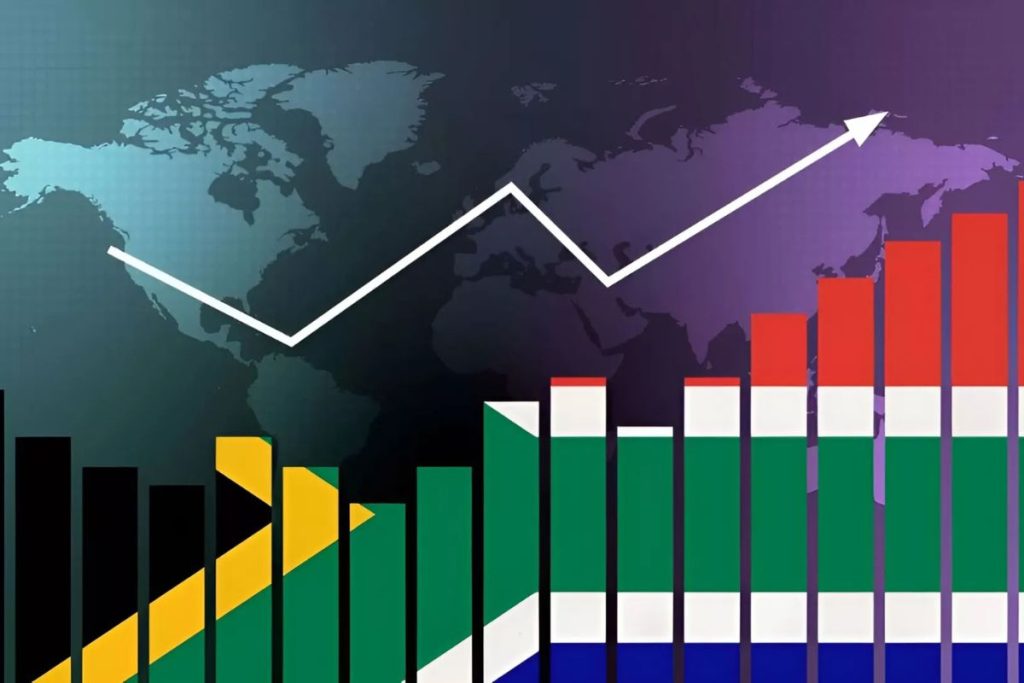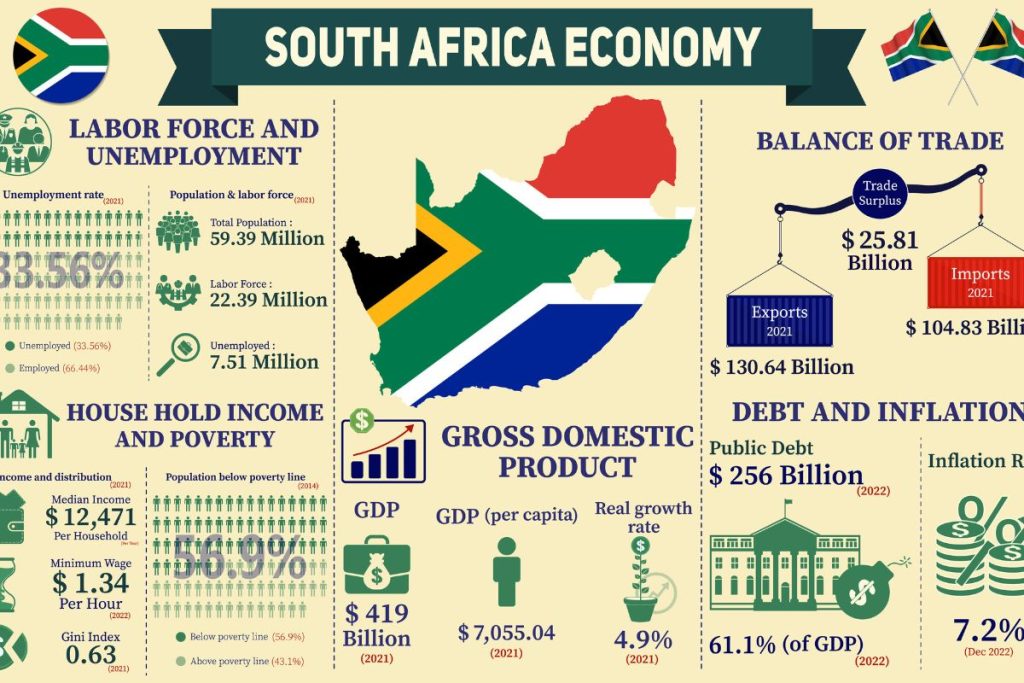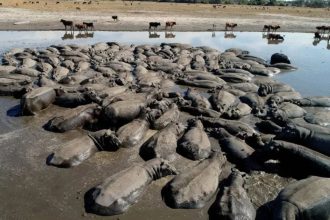The South African Post Office (SAPO) is one of the country’s ailing state-owned
enterprises (SOEs), initially positioned as engines for job-intensive economic growth
and strategic sector development. SAPO is an indispensable asset, historically contributing to growth and development, particularly in the late 18th century. The further development of SOEs in the early 20th century sought to advance strategic sectors of the economy (telecommunications, energy, transport, and manufacturing) and to promote sustainability and guarantee self-sufficiency.

As witnessed in the People’s Republic of China, SOEs create a robust industrial
base that provides massive employment and infrastructure investment (in this case,
communications, transport, and logistics). Of all 40 million registered firms in China,
363 000 are 100% state-owned, 629 000 are 30% state-owned, and nearly 867 000
have at least some state ownership. These enterprises further develop opportunities
for public-private partnerships and open other windows of involvement for private
business investment. China, the world’s second-largest economy, is also called the
“workshop of the world”, attracting foreign investment only to learn from foreign
technology. Another example of the economic outcomes of SOEs is post-World War
II France.
Of course, China’s model operates within a centralised political system that allows
for long-term planning, high levels of coordination, and disciplined state execution.
While South Africa has maintained broad policy consistency under a dominant-party
system, it faces serious challenges in institutional capacity, intergovernmental
coordination, and implementation, which means that strong institutions and capable
leadership must support successful state ownership here.
At a time of deindustrialisation, financialisation, and automation, coupled with high
and rising youth unemployment, South Africa is faced with the privatisation of
strategic SOEs. This spells a loss of enterprises historically proven to be
instrumental in catalysing industrialisation, achieving economic growth and
development, and upskilling human resources.
Telecommunications company Telkom, steel manufacturer Iscor, and petrochemical
company SASOL have all been privatised. However, this does not always result in
better socioeconomic outcomes or a reduced burden on the fiscus. Telkom, for
example, has undergone extensive downsizing, leading to major retrenchments,
while its network coverage remains extremely poor in many rural parts. Iscor’s
privatisation similarly led to large-scale job shedding. These cases illustrate that
privatisation often undermines employment and deepens spatial inequality.
Privatisation’s problem is that it permits foreign ownership and control of the
country’s strategic sectors and economic resources. This is antagonistic to the
government’s transformation agenda of diversifying ownership and control of the
economy. These shifts also tend to displace workers, limit access to essential
services in non-profitable regions, and weaken the state’s ability to fulfil its
redistributive and developmental obligations.

SAPO was established on 2 March 1792 at the Castle in Cape Town. Through its
nationwide footprint, its services have included distributing social grants, courier
services, transporting medicines and cash, and mail delivery. International services
by road, sea, and air are available to many countries. Importantly, SAPO services
the country’s most remote areas relatively cheaply. In some rural towns where
private alternatives are unavailable, SAPO has long functioned as a centre of
economic activity, providing services and a sense of inclusion in national life. That’s
a significant part of the argument for its preservation and reinvention — not just as
an employer, but as an enabler of equality in service delivery and geographic
access.
On 9 February 2023, SAPO was placed in provisional liquidation because of its
inability to pay its creditors. By 10 July 2023, SAPO was placed under voluntary
business rescue to support the implementation of “The Post Office of Tomorrow
Strategy”, which annulled the liquidation order.
Underperformance at the SAPO is attributed to various factors, including state
capture, inept management, irregular, fruitless and wasteful expenditure, lack of
political will, and undue political interference. Other key challenges include power
blackouts, branch closures, and rising private-sector competition (Courier Guy, PEP
Paxi, and PostNet), all against the backdrop of changing consumer preferences and
migration to digital alternatives. Changing environments require adaptability,
innovation, and international competitiveness.
A critical aspect of SAPO’s poor financial performance is expenses that exceed
revenue (a net loss). This is attributable to a bloated organisational structure and
ever-increasing operating expenses. SAPO continues to wrestle with improving
revenue generation amid financial mismanagement, misappropriation of funds
(mainly those intended for the “turnaround” strategy), and misallocation of resources.
BusinessTech (2023) reports that in the third quarter of 2023, SAPO had liabilities of
R12.5 billion and only R4.5 billion in assets. This indicates a negative debt-to-asset
ratio and thus insolvency, with a negative equity of R7.9 billion. Business rescue
practitioners at SAPO face a mammoth task that invariably requires state bailouts in
the billions.
Between 2016 and 2019, R7.3 billion was committed to bailing out SAPO. In 2023,
the Minister of Communications and Digital Technologies, Mondli Gungubele, tabled
a R2.4 billion bailout and pledged a further R3.8 billion.
Consequently, 400 branches have closed since 2020 as part of cost-containment
measures. Before the COVID-19 pandemic, there were an estimated 1,300 SAPO
branches nationwide. The further implementation of the business rescue plan places an additional 7,000 jobs in jeopardy to save R1.3 billion annually. Over 1,000 former
employees have taken voluntary severance packages (VSPs) since November 2022.
What can be done? Well, in concordance with South Africa’s developmental
aspirations outlined in the National Development Plan (NDP) — which inter alia
seeks to drastically reduce poverty and inequality and create 30 million jobs by 2030
— recommendations can only be multilayered. First, SAPO should use institutional
capacity to implement the turnaround strategy sagaciously, not uncritically, with only
consideration for profitability; socioeconomic effects of massive retrenchments and
branch closures must be well thought out.
Institutional capacity is inseparable from meritocratic recruitment, competent and
principled leadership, and an ethics-based organisational culture where corrupt
practices cannot find solace. The preceding bleeds into the insulation of the SAPO
staff complement from politics. SOEs are state assets owned by the public via the
Department of Public Enterprises, and as such, regardless of political developments,
SAPO should always efficiently service South Africans.
Any set of recommendations is only complete with mentioning the centrality of
political will by a developmental elite that privileges development — with the
underlying belief that SOEs like SAPO are instrumental in driving job-intensive
economic growth and development, notwithstanding the importance of SAPO in
servicing rural communities with courier services, mail delivery, and distribution of
social grants. It must be considered that profitability for shareholders must come with
improved user experience, particularly for townships and rural areas. Therefore,
political will coupled with a developmental ideology is critical in restructuring (not
unbundling) in line with the founding provisions of the Constitution: human dignity
and equality.

Finally, SOEs are ideally positioned to achieve South Africa’s developmental
objectives through a multilayered policy approach that includes the private sector.
SOEs like SAPO are indispensable in sourcing capital equipment, finance, public-
private partnerships, and job creation that carry a multiplier effect for their associated
value chain. SAPO should leverage private partners to acquire finance and
technology to rebuild itself, while the state maintains 51% of the ownership of the
strategic entity.
The embattled SOE must reclaim its customer base, build revenue, and ensure
financial soundness by exploiting new technologies, digitisation, ingenuity,
innovation, and efficiency to meet growing customer needs, demands, and
expectations. This cannot be done without the capacity of human resources to
ensure that private alternatives do not continue to devour SAPO’s lunch.
As argued earlier, SOEs like SAPO should not be evaluated purely by profitability,
but by their developmental value in reducing poverty, creating jobs, and ensuring
national self-sufficiency. This can be seen in China, which maintains a healthy
economy despite its trade war with the USA.





















